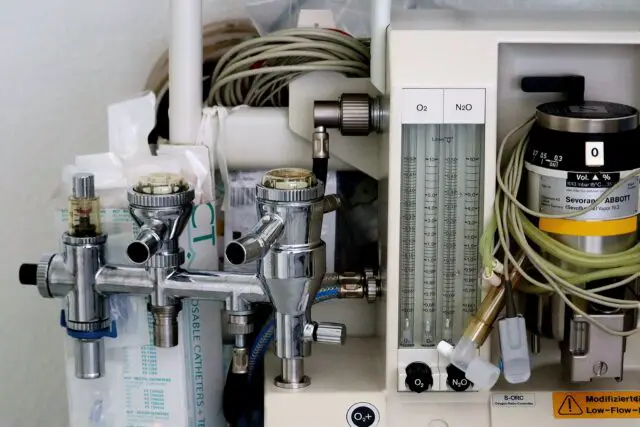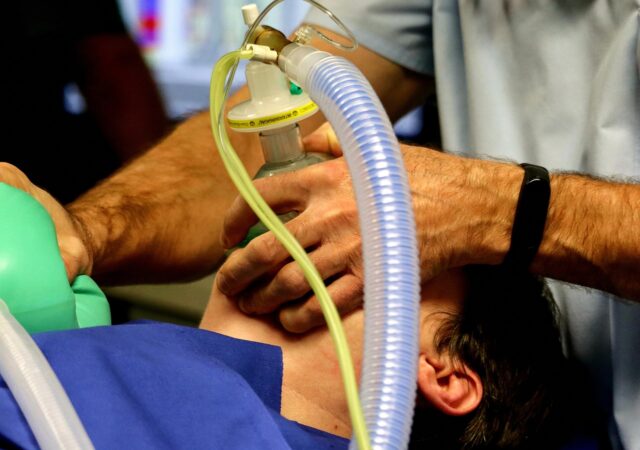As a critical care nurse, you find yourself at the very heart of life and death situations, making a profound difference in the lives of your patients and their families. Your dedication, skill, and compassion are key to saving lives and providing emotional support during some of the most challenging moments anyone can face. In this critical care nurse job description, we will explore the essential aspects of a critical care nurse’s job, the qualifications required, and the unique qualities that make them exceptional in their field.
Role of Critical Care Nurses
Critical care nurses work in various settings, such as intensive care units, emergency rooms, and recovery rooms, where patients require close monitoring and specialized care. Their primary responsibilities include:
- Monitoring Patients: They constantly assess and monitor patients’ vital signs, including heart rate, blood pressure, and oxygen levels, to ensure that they remain stable and to detect any changes that may require immediate intervention.
- Administering Medications: Critical care nurses administer medications, IV fluids, and blood products, while ensuring that they’re given at the correct dosage and time to optimize the patient’s recovery.
- Supporting Patients and Families: They provide emotional support and education to patients and their families, helping them understand the patient’s condition and treatment plan.
Required Education and Certifications
To become a critical care nurse, you will need:
- Nursing Degree: A Bachelor of Science in Nursing (BSN) or an Associate Degree in Nursing (ADN) is required to work as a registered nurse. You must also pass the National Council Licensure Examination for Registered Nurses (NCLEX-RN) to obtain your nursing license.
- Certification in Critical Care Nursing: Many employers require or prefer critical care nurses to hold a certification in critical care nursing, such as the Critical Care Registered Nurse (CCRN) certification. This demonstrates your expertise and commitment to providing the highest level of care to critically ill patients.
Skills and Qualities of a Successful Critical Care Nurse
Being a critical care nurse requires a unique set of skills and qualities:
- Communication Skills: Excellent communication skills are vital for critical care nurses, as they must convey complex information to patients, families, and colleagues while remaining compassionate and empathetic.
- Attention to Detail: With patients’ lives on the line, there is no room for error. Critical care nurses must be meticulous and detail-oriented to ensure they provide the best possible care.
- Emotional Resilience: Working in high-stress environments with critically ill patients can be emotionally draining. Critical care nurses must be able to cope with these challenges while maintaining a professional and compassionate demeanor.
- 4.4. Critical Thinking and Problem-Solving Abilities: Critical care nurses often face complex and rapidly changing situations. They need to think quickly and make informed decisions to provide the best care for their patients.
Work Environment and Challenges
Critical care nurses typically work in fast-paced, high-stress environments where every second counts. They may encounter difficult situations, such as patients with multiple organ failure, severe trauma, or life-threatening conditions. Additionally, they often work long hours and may need to be on call for emergencies. Despite these challenges, critical care nurses find fulfillment in knowing they’re making a meaningful difference in their patients’ lives.
The Rewarding Aspect of Being a Critical Care Nurse
Being a critical care nurse can be incredibly rewarding. These nurses have the opportunity to witness the power of their care and skill as patients recover from critical conditions. The gratitude and appreciation from patients and their families can be deeply touching and provide a sense of purpose that few other professions can match. The ability to offer comfort and support during the most challenging moments is a privilege that critical care nurses carry with pride and dedication.
Critical care nurses are true heroes in the healthcare field, providing specialized care and support to patients and their families during their most vulnerable moments. With a strong educational foundation, specialized certification, and a unique set of skills and qualities, they navigate the challenging world of critical care with grace and compassion. The emotional rewards of this profession are unparalleled, making it a truly fulfilling career choice for those who are called to it.
FAQs Critical Care Nurse Job Description
- What is the difference between a critical care nurse and a regular nurse? Critical care nurses are registered nurses who have specialized training and certification in caring for critically ill patients. They work in high-stress environments like intensive care units, emergency rooms, and recovery rooms, while regular nurses may work in various healthcare settings, such as hospitals, clinics, or nursing homes.
- How long does it take to become a critical care nurse? Becoming a critical care nurse typically takes between 2 to 4 years, depending on whether you pursue an Associate Degree in Nursing (ADN) or a Bachelor of Science in Nursing (BSN). After obtaining your nursing license, you will need to gain experience in critical care nursing and obtain a specialized certification, such as the CCRN.
- What are the most common conditions treated by critical care nurses? Critical care nurses treat a wide range of life-threatening conditions, including sepsis, respiratory failure, traumatic injuries, organ failure, and post-surgical complications.
- Do critical care nurses work with other healthcare professionals? Yes, critical care nurses work closely with physicians, respiratory therapists, pharmacists, and other healthcare professionals to provide the best possible care for their patients.
- What can I do to prepare for a career as a critical care nurse? To prepare for a career as a critical care nurse, consider obtaining a Bachelor of Science in Nursing (BSN), as it may provide more opportunities for career advancement. Gaining experience in high-stress healthcare settings and volunteering in hospitals or clinics can also help you develop essential skills and gain valuable insights into the profession.





